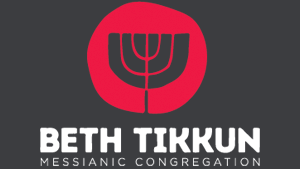Devarim 2018-19
As we begin this year’s parshah Devarim teaching, we uncover a few textual clues pointing us to the deep essence of the Torah. We then ask the question, “Why does Moses begin his summary of the nearly 40-year wilderness journey with a recounting of the appointment of leaders, judges within Israel? Why is this foremost in his mind?” Answering that question leads us into a general discussion of how we are to judge. We then briefly review the importance of conquering the enemies east of the Jordan, and we come to a sobering realization about the two-and-a-half tribes who settle east of the Jordan.
Visuals: Devarim 2018-19.pdf
Medios Visuales: Devarim 2018-19.pdf
Podcast: Play in new window | Download
Subscribe: Google Podcasts | Stitcher | TuneIn | RSS



6 Comments
by Janet
On August 17, 2019
Make sure to thank Adam for his comment.
by L. Grant Luton
On August 21, 2019
Will do!
by Heather Gibson
On July 20, 2020
Grant: I don’t see where the half tribe of M’Nasheh asked to stay on the wrong side of the Jordan like Reuven and Gad did. Rather, I read that Moshe gave them land seemingly of his own accord. How did they become included in this mistake? Thank you, Heather
by L. Grant Luton
On July 20, 2020
Heather, that’s a question that people have been asking for millennia! Here are the theories: (A) Manasseh also had a lot of livestock, so when they saw Reuben and Gad’s success in getting their portion in the rich cattle country east of the Jordan, they put in their request as well and were also permitted to settle there. (B) Moses knew that the land east of the Jordan was far too large for just Reuben and Gad, so he offered to let others join them and some of the tribe of Manasseh advantage of this. There may be better guesses, but these are the two that the rabbis of old have held too.
by Matthew Morrison
On July 25, 2020
There are religious kabbutzim in Isreal so how do you connect communism to Satanism?
by L. Grant Luton
On July 25, 2020
Matthew, We must make a distinction between a commune (a small, voluntary, mutually beneficial arrangement) and Communism, the political system. In an Israeli kibbutz, a person can volunteer to work, learn, and contribute for a period of time … and then leave. Try that in Communist China! The kibbutz model is based upon the principal ‘what is mine is yours’. Communism is based upon ‘what is yours is mine’. Big difference!